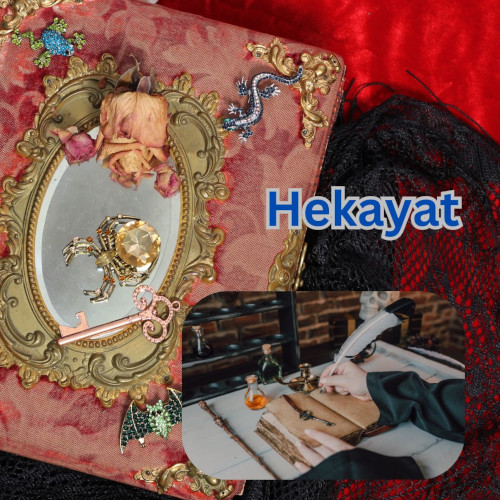Hekayat 22 from Chapter 3 of Golestan of Saadi

English Translation for Hekayat
I heard of a wealthy man who was as famous for his miserliness as Hatim al-Tai was for his generosity. Outwardly, he was adorned with the riches of the world, but his inherent stinginess was deeply rooted. He would not give a piece of bread to save a life, nor would he offer a morsel to a cat or a bone to a dog. In short, no one ever saw his door open or his table spread.
A dervish would only smell the aroma of his food,
And birds would not pick up the crumbs after his meals.
I heard that he had set out on a journey to the Western Sea, heading towards Egypt with grand ambitions. However, when he was caught in a storm, a contrary wind arose.
What can one do with a disagreeable nature?
Not every time is the police suitable for the ship.
He raised his hands in prayer and began to cry out in vain. “And when they embark on a ship, they call upon God, sincere to Him in religion.”
What use is the supplication of a needy servant,
When praying to God, with generosity in his lap?
Provide comfort with your gold and silver,
And enjoy some of it yourself.
Then, this house that will remain after you,
Build it with bricks of silver and gold.
It is said that he had relatives in Egypt. They became wealthy with the remainder of his wealth, tore up their old clothes upon his death, and wore fine garments. Within that week, I saw one of them riding swiftly, with a servant running behind.
Oh, if the dead could return,
To their tribe and kin,
The return of the inheritance would be harder,
For the heirs than the death of their relative.
With the familiarity that existed between us, I took his sleeve and said:
"Eat, O noble-hearted man,
What that unfortunate one gathered and did not eat."
متن حکایت
مالداری را شنیدم که به بُخْلْ چنان معروف بود که حاتمِ طایی در کَرَم. ظاهرِ حالش به نعمتِ دنیا آراسته و خِسَّتِ نفسِ جِبِلّی در وی همچنان مُتَمَکِّن، تا به جایی که نانی به جانی از دست ندادی و گربهٔ بُوهُرَیْرَه را به لقمهای ننواختی و سگِ اصحابِ الکَهف را استخوانی نینداختی. فیالجمله، خانهٔ او را کس ندیدی در گشاده و سفرهٔ او را سر گشاده.
درویش به جز بویِ طعامش نشنیدی
مرغ از پسِ نان خوردن او، ریزه نچیدی
شنیدم که به دریایِ مغرب اندر، راهِ مصر برگرفته بود و خیالِ فرعونی در سر؛ حَتّیٰ اِذا اَدْرَکَهُ الْغَرَقُ، بادی مخالفِ کِشتی برآمد.
با طبعِ ملولت چه کند، هرکه نسازد؟
شُرْطه همه وقتی نبوَد لایقِ کَشتی
دستِ دعا برآورد و فریادِ بیفایده خواندن گرفت. وَ اِذا رَکِبُوا فِی الْفُلْکِ دَعَوُ اللهَ مُخْلِصینَ لَهُ الدّینَ.
دستِ تضرّع چه سود بندهٔ محتاج را
وقتِ دعا بر خدای، وقتِ کَرَم در بغل؟
از زر و سیم، راحتی برسان
خویشتن هم تمتّعی برگیر
وآنگه این خانه کز تو خواهد ماند
خشتی از سیم و خشتی از زر گیر
آوردهاند که در مصر اَقاربِ درویش داشت. به بقیّتِ مالِ او توانگر شدند و جامههای کهن به مرگِ او بدریدند و خَزّ و دِمیاطی بریدند. هم در آن هفته یکی را دیدم از ایشان بر بادپایی روان، غلامی در پی دوان.
وه که گر مرده بازگردیدی
به میانِ قبیله و پیوند
ردِّ میراث سختتر بودی
وارثان را ز مرگِ خویشاوند
به سابقهٔ معرفتی که میانِ ما بود، آستینش گرفتم و گفتم:
بخور، ای نیکسیرتِ سَرهمَرد
کان نگونبخت گِرد کرد و نخوَرد


